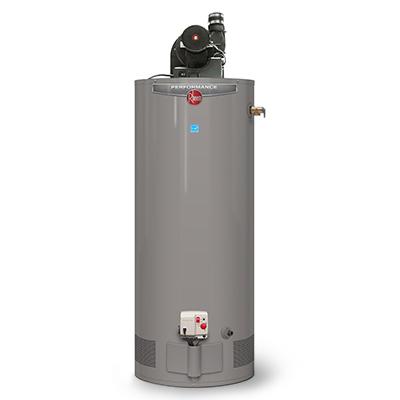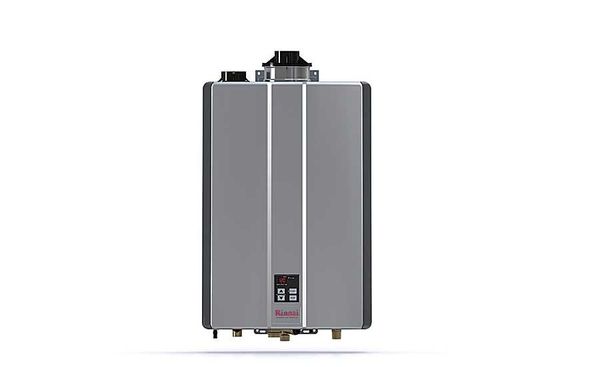22 Ranchers View, Okotoks, Alberta
Hot Water Heaters - Tanks vs Tankless

Hot water is used for many household tasks each day. Having a reliable hot water heater in your home provides the warmth you need for bathing, laundry, dishes, and other chores. New hot water heaters are energy efficient and help homeowners keep energy costs lower. Learn about the different types of hot water heaters and how you can help yours operate more efficiently.
Types of Hot Water Heaters
There are two basic types of water heaters: storage water heaters and tankless water heaters.
Storage Water Heaters
Storage water heaters, also called tank or conventional models, heat fresh water and store it in a storage tank so it is available on demand. This model does consume more energy to keep stored hot water at appropriate temperatures, but you’ll have the convenience of hot water whenever you need it. Once the tank is depleted of warm water, you’ll need to wait for it to refill before you have access to hot water again. These units require more space for installation, as room is needed to house the large storage tank. Storage water heaters are typically lower in purchase price compared to tankless units.
There are two types of storage hot water heaters:
- Mid Efficiency (Conventional) & Power Vented
- Power-Vented Water Heaters
How Do They Work?
Power-vented water heaters use a two pipe system driven by a venter motor for combustion. Both pipes are vented from the outside of the home, one for fresh air intake and the other for exhaust. The venter motor is mounted on top of the heater. It's main function is to pull fresh air into the unit which then mixes with natural gas, combusts and is exhausted outside your home. Because the heater creates its own pressure using a venter motor, it’s not vulnerable to negative pressures caused by other appliance exhaust fans. (dryers, range hoods, bathroom fans etc.)
Energy Efficiency
This water heater has grown in popularity as homeowners gravitate toward more energy-efficient devices. It has an energy efficiency of around 70%. This style of heater stored the water until it is demanded by a fixture in your home. As a result energy is constantly being wasted to keep the stored water hot and ready for on demand use.
Not only do these devices meet Energy Star criteria, they often exceed it, ranking up to 15.5 percent more efficient than federal standards. Buyers of the power-vented water heater can expect to save as much as 14 percent annually in energy costs.
Cost Considerations
Power vented water heaters are flexible in their placement, and are relatively easy to retrofit from an older conventional tank. Installation costs compared to a conventional style tank are slightly higher based on the cost of the tank itself and the installation of the two pipe system through the sidewall of the home. Installations starting at $2,550.00
Mid Efficiency Storage Water Heaters
How Do They Work?
Conventional, or mid efficiency storage style tanks store and preheat 30-50 gallons of water in a tank using the surrounding air to provide combustion. They are vented with a C-vent (metal) exhaust. The preheated water travels through the piping in your home and is used for showers, laundry, or washes dishes. once depleted of stored, preheated water he tank then refills with fresh cold water to be reheated once again.
Energy Efficiency
Conventional water heaters are 60% energy efficient (10% less than power vented). The flue gases are still hot because the remaining heat was not efficiently transferred from the flame, through the heat exchanger and into the water. Conventional water heaters are vented using natural draft or the buoyancy effect. Because of this they are vulnerable to negative pressures created by dryer vents and bathroom and kitchen exhaust. These negative pressure can suck the flu gases back into the home rather than being vented out the chimney. This results in carbon monoxide and other products of combustion building up in the mechanical room of your home. Power-vented and tankless water heaters have been specifically engineered to avoid this issue.
Like power-vented water heaters, conventional heaters store water in a tank where it is kept warm until needed for use. As a result, fuel is being wasted to keep the stored water heated even when there is no immediate demand. One benefit to this style of water heater becomes apparent during power interruptions or outages to your home. Conventional heaters do not require electricity to operate.
Cost Considerations
Although conventional water heaters are less energy efficient than power-vented or tankless style heaters, the initial cost to install is much lower. When choosing the right style heater for your home it comes down to initial upfront installation costs vs usage costs. Remember, more energy efficient systems will show a good return on investment over time. Conventional water heaters heat and reheat water at a pre-set temperature, regardless of your water needs. This increases your utility bills, especially during the winter months in Alberta. Installations starting at $1,350.00
Tankless Water Heaters
Rinnai Tankless water heaters are a newer technology. They heat water on demand, rather than storing it. When a fixture in your home calls for hot water, the tankless water heater activates to heat water and deliver it where it is needed. Hot water on demand means no constant heating of stored water. These units boast an AFUE (annual fuel utilization efficiency) rating of up to 96%. This means 96% of the fuel and electricity consumed by Rinnai Tankless units is directly converted into hot water.
Rinnai Tankless water heaters save up to 40% on fuel & energy consumption compared to conventional and power vented storage tanks. They are capable of heating enough hot water for up to four fixtures and or appliances at a time. Tankless water heaters are typically more expensive to install, but due to their lack of tank, they can be placed into tight areas where a large water tank would not fit.
They also boast up to a 20 year lifespan when properly maintained by a certified Rinnai Installer. Unlike conventional and power vented hot water tanks, tankless water heaters are also eligible for up to $1000.00 in government rebates under the Alberta Energy Efficiency Program. Installations starting at $4,500.00 before rebate.
Lendrix Hvac Services Inc.
Sources: Will Housh


Privacy Policy
We want our visitors to this website to always be aware of any information we collect, how we use it, and under what circumstances if any, we disclose it.
We respect your right to personal privacy. To that end, we collect and use information through our website only as disclosed in this Privacy Policy. This statement applies solely to information collected on this website.
We do not automatically gather any personal information from you, such as your name, phone number, or e-mail address. This information is only obtained if you supply it voluntarily, usually through contacting us by e-mail.
Any information that we may collect is:
- Used to respond to your request for information or services
- Used to improve the content of our Web page
- Never shared with other organizations for commercial purposes
- If we publish a newsletter, we will not sell or share our subscribers’ email addresses. If we operate online surveys, we will not sell or share our subscribers’ email addresses.
If we decide to change our privacy policy, we will post those changes to this privacy statement.
If site users have any questions regarding our privacy policy, please contact us today.
Whether it's installing a new AC, Furnace, Water Heater, or Garage Heater or service on your existing equipment, we're here to help!




